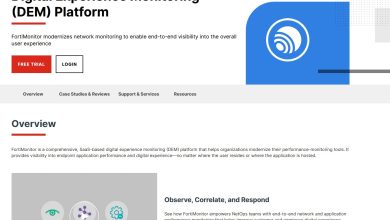
As a startup or SME, insurance cover can often slip down your list of priorities, but it’s crucial to have appropriate cover that’s tailored to your specific needs. With a particular interest in covering the increasing challenges that small businesses are facing in the 21st century, Clay Morrison shares four tips for business owners who are struggling to find the best insurance policy for their SME:
Do your research
Research sounds daunting to some people. For many, asking the right people a few questions counts as research. Why go out of your way if a consultant already gave you their two cents?
Here’s why: no one knows a small business like its owner does. If you rely too much on outside information, you might miss some obvious points. For instance, if you make the majority of your sales online you need a policy that protects the different avenues of risk in your supply chain. Bricks and mortar businesses possibly wouldn’t need a huge investment in such a policy. However, expanding bricks and mortar stores that are using online gateways to reach new markets need to think this through.
Pay particular attention to your cyber policy
A lot of small businesses today are run either remotely online or rely on the internet for many operations. That means that a lot of money is often invested in perfecting and upgrading these systems. The insurance policies that protect cyber liability vary from company to company, but many SME owners fail to take a detailed look at what these policies actually cover. Often, you might find that business interruption insurance or professional indemnity insurance is not covered in your policy. In the event of a major cyber-attack, you may be unable to recover from the downtime and lack the funds to boost your business back to full health.
Carefully tailor your policy to suit your needs
Many insurance companies allow businesses to tailor their insurance to suit them. The reason this is vital is that different businesses have different weak points. A florist business needs a different set of policies compared to a construction company, for example.
They each have varying risks that they need to avert and these risks are covered by varying policies. A wise business owner should research the risk areas that they may be exposed to. With this information to hand, the business owner should then ensure the policy they pick is tailored to insure those specific areas first.
Recalibrate when needed
When businesses change, the insurance coverage should be reviewed to take in these changes. Your coverage when you started may not be suitable when you decide to upsize or downsize your small enterprise.
It’s cost-effective to recalibrate your insurance to see if it still fits what your business offers. This process also prevents you from paying for insurance features that aren’t necessary or applicable to your business.
In an ideal world, it’s recommended that you review your coverage several months before your policy renews. Discuss any changes with your policy provider, agent, or broker, which they will then use to identify any changes to your current business insurance plan.
Proper research helps companies figure out how to make the most of their insurance policy. If you’re struggling with this, look for an insurance company that helps you through the complex process of insurance decisions. These companies allow small businesses to access the data that helps make sense of the different policies available.
Gambling on Low Liability Insurance
Any businesses can be hit by a lawsuit and it can be unpredictable. Owners cannot predict when the lawsuit will be filed or the amount of damaged the plaintiffs will see. One large claim can put a small business into a full closure.
When buying any insurance for your businesses, don’t skimp on limits. General liability may look appealing since you no longer need to research and customise your plan. But, this could also give your business a weak spot if you miss insurance certain things. Thus, seek assistance with your agent or broker to create a custom-made plan for your business.
The future
As the business climate continues to evolve, with social media and the online world becoming increasingly important, businesses need to stay vigilant. These new frontiers offer new opportunities, but also new dangers.
Small businesses can now reach more potential customers than ever before, and create meaningful relationships with them through online platforms. Through comments and messages, for example, social media platforms allow businesses to easily engage in extended, more casual conversations with those around them. As a networking opportunity, too, social media is an invaluable tool. Twitter and Linkedin both have thriving business communities, where businesses share knowledge with each other and making mutually beneficial contacts. Social media savvy businesses can reap significant awards if they follow the right strategy.
If the wrong strategy is followed, however, this social media presence can present a potential PR disaster. Perhaps more worrying are the security issues that social media platforms can present – is your data safe? What happens when there’s a data breach? As well as the security of your own website, you’d be potentially open to cyber-security threats to the data you share with social media platforms, too.
As the online world becomes increasingly dominant, then, it’s even more important for small businesses to make sure their cyber security is up-to-date.




